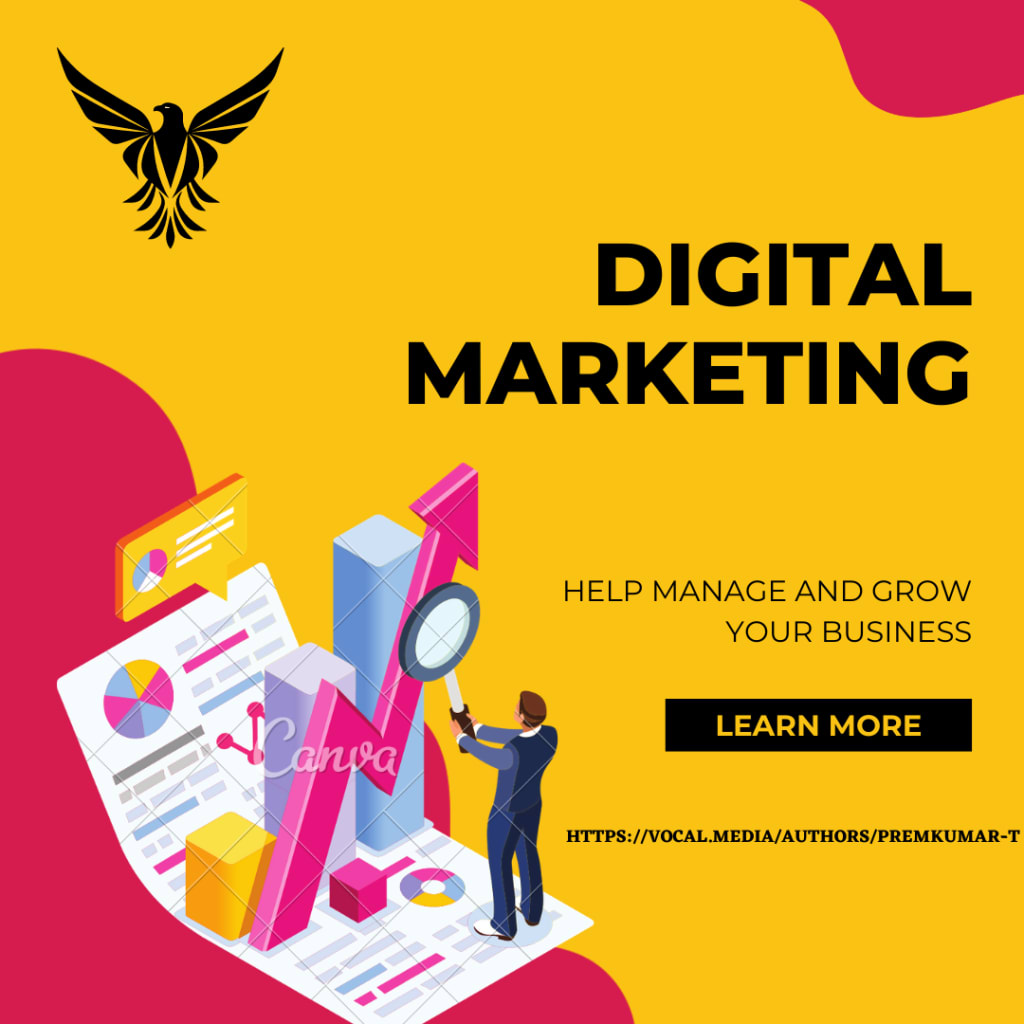
DIGITAL MARKETING
Digital marketing is the practice of promoting products, services or brands using digital channels and technologies. These channels include search engines, social media, email, mobile apps, and websites. The goal of digital marketing is to reach a target audience and convert them into customers or clients.
There are many different tactics and strategies used in digital marketing, some of the most common include:
- Search engine optimization (SEO): The process of optimizing a website or web page to rank higher in search engine results pages (SERPs) for relevant keywords or phrases.
- Content marketing: The creation and distribution of valuable, relevant, and consistent content to attract and engage a target audience, with the ultimate goal of driving profitable customer action.
- Social media marketing: The use of social media platforms to promote products, services, or brands.
- Pay-per-click (PPC) advertising: An online advertising model in which advertisers pay each time a user clicks on one of their ads.
- Email marketing: The use of email to promote products, services, or brands and to build relationships with potential customers.
- Influencer marketing: Partnering with individuals who have a significant following on social media to promote products, services, or brands.
- Affiliate marketing: A performance-based marketing in which a business rewards one or more affiliates for each visitor or customer brought about by the affiliate's own marketing efforts.Mobile marketing: The use of mobile devices and apps to promote products, services, or brands.
By utilizing digital marketing techniques, businesses can reach a large audience at a relatively low cost, and can track the success of their marketing efforts using analytics and data.
It is important to note that digital marketing is an ever-evolving field and it's important to stay up-to-date with the latest trends and best practices to ensure the most effective campaigns.
digital marketing could cover a variety of topics, such as:
- The importance of developing a comprehensive digital marketing strategy that includes SEO, social media, email marketing, and content marketing.
- The use of data and analytics to track the success of digital marketing campaigns and make informed decisions about future strategies.
- The ways in which businesses can use digital marketing to reach new customers, increase brand awareness, and drive sales.
- Best practices for creating and sharing engaging content across different digital channels, such as blog posts, infographics, and video.
- The latest trends and innovations in digital marketing, such as the use of artificial intelligence and chatbots, the growing importance of voice search, and the use of influencer marketing.
- The role of digital marketing in e-commerce, including the use of online marketplaces and social media to drive sales and customer engagement.
- The legal considerations and ethical guidelines that businesses need to keep in mind when launching digital marketing campaigns.
- The benefits and drawbacks of various digital marketing tactics such as PPC, Affiliate marketing, Influencer marketing, etc.
- Tips and tactics for small businesses to maximize their digital marketing efforts with limited resources
- The future of digital marketing and how it will continue to evolve in the coming years and how to adapt to the change.
advantage of digital marketing
There are many advantages to using digital marketing for promoting products, services, or brands, some of the most significant include:
- Reach a large audience: Digital marketing allows businesses to reach a large audience through a variety of channels, including search engines, social media, and email. This can help to increase brand awareness and drive sales.
- Cost-effective: Compared to traditional marketing methods, digital marketing is relatively cost-effective. Many digital marketing tactics, such as content marketing and social media marketing, are free or low-cost, and can be highly effective.
- Targeted marketing: Digital marketing allows businesses to target specific demographics, such as age, gender, location, and interests, making it more likely that their marketing efforts will reach the right audience.
- Measurable and trackable results: Digital marketing campaigns can be easily tracked and measured using analytics and data. This allows businesses to see which tactics are working and which are not, and make adjustments accordingly.
- Increased engagement: Digital marketing allows businesses to engage with their target audience in a variety of ways, such as through social media, email, and mobile apps. This can help to build relationships with potential customers and increase brand loyalty.
- Flexibility: Digital marketing allows businesses to make changes to their campaigns quickly and easily. This allows them to adapt to changes in their target audience or market conditions and make adjustments as needed.
- Global reach: Digital marketing allows businesses to reach a global audience, enabling them to expand into new markets and increase their customer base.
- Personalization: Digital marketing platforms allow businesses to personalize their campaigns and messaging to different segments of their audience, making the message more relevant and effective.
- Automation: Many digital marketing tasks can be automated, such as email campaigns, social media post scheduling, and ad targeting, which can save time and improve efficiency.
- Diversify the marketing mix: Digital marketing allows businesses to diversify their marketing mix by adding new tactics and channels to the mix, which can help to reach new audiences and achieve marketing goals.






Comments
There are no comments for this story
Be the first to respond and start the conversation.